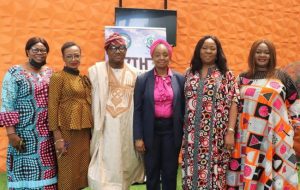Director General of the Nigerian Maritime Administration and Safety Agency (NIMASA), Dr Bashir Jamoh, has restated the agency’s commitment to effective pollution prevention and control in the Nigerian maritime domain.

Jamoh said in a statement on Tuesday, May 24, 2022, in Lagos that pollution prevention and control were necessary to create an enabling environment for the sector to thrive.
He made the remark at the 7th meeting of the National Standing Committee on International Oil Pollution Compensation (IOPC) Fund implementation in Nigeria.
He emphasised the agency’s commitment to the effective utilisation of the IOPC Fund in the country.
The DG, who was represented by the Agency’s Director, Marine Environment Management Department, Mrs Aishatu Jidda, urged all stakeholders to abide by the provisions of all enabling international instruments as provided by the International Maritime Organisation (IMO).
He added that the Convention for Civil Liability for Oil Pollution Damage 1992 and the International Convention on Establishment of an International Fund for Compensation for Oil Damage 1992, which Nigeria was signatory to, remained relevant to the growth and development of the Nigerian maritime sector.
“Nigeria has domesticated these conventions and we are qualified to reap the benefits therein. We at NIMASA have a register for contributing oil receivers in Nigeria.
“We urge all stakeholders to play their part to ensure reports emanating from Nigeria are in line with acceptable standards.
“It is good we have a record as a contributing oil receiver and because it is our obligation to ensure we give the IOPC Fund, the names of all contributing oil receivers in Nigeria.
“NIMASA is committed to ensuring Nigerians enjoy all the benefits from being signatory to these International Conventions,” he said.
He said the objective of the meeting was to deliberate on the resolutions reached at the 6th meeting including the development of a roadmap on the establishment of a Local Oil Pollution Compensation Fund by local insurance companies.
Others, he said, were drawing up national guidelines on fish stock/fisheries, as well as the collation of recent data on Contributing Oil Receivers and Contributing Oil Products imported.
By Chiazo Ogbolu
